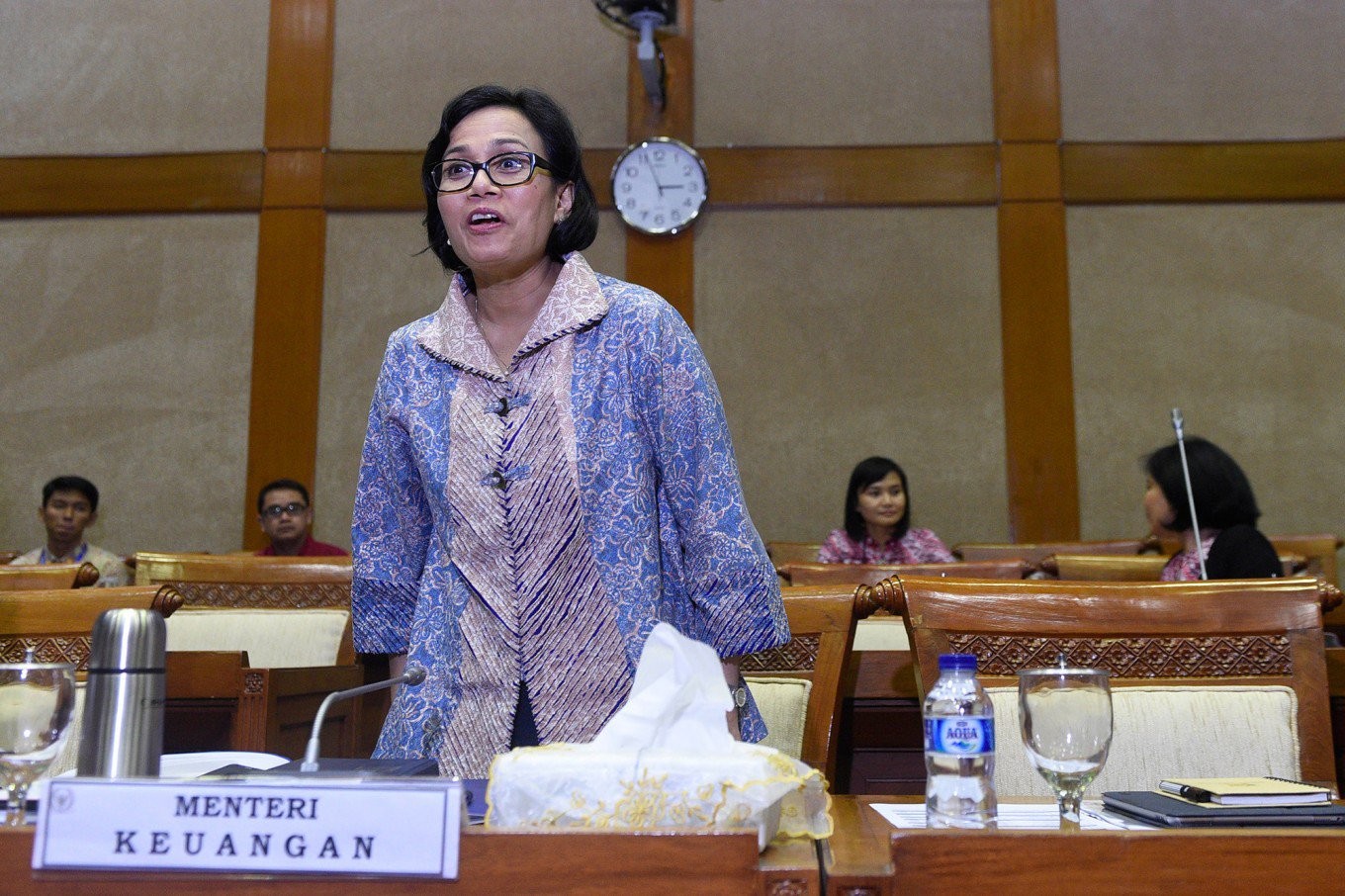Jokowi starts early budgeting tradition
Change Size
 Finance Minister Sri Mulyani Indrawati greets House of Representatives members before a working meeting with House Commission XI in Jakarta on Sept. 29. (Antara/Puspa Perwitasari)
Finance Minister Sri Mulyani Indrawati greets House of Representatives members before a working meeting with House Commission XI in Jakarta on Sept. 29. (Antara/Puspa Perwitasari)
T
he early bird gets the worm. That may be what President Joko “Jokowi” Widodo had in mind when he gathered his Cabinet for a plenary meeting on Wednesday to discuss the 2018 state budget.
The topic was considered unusual, considering that it was still early November 2016 and the lawmakers had only approved the 2017 state budget last week.
Jokowi, however, said he wanted to get his ducks in a row long before 2017 ended.
“We need to start even earlier or else our planning would be too late. First and foremost, we want our growth to be above 6 percent,” he said during the opening of the plenary meeting.
He added that the preparations for 2018 must also take into consideration important factors like raising the growth of consumption by 5 percent, exports by 4 percent, imports by between 2 and 3 percent and investments by more than 10 percent.
Realization may not come easy, a fact acknowledged by the President. His administration has so far failed to reach its economic growth targets for two years in a row, ever since he was inaugurated in late 2014.
The slowest growth in six years was the 4.79 percent recorded in 2015, much lower than the initial target of 5.7 percent, as commodity prices plunged and China suffered from an economic slowdown.
For 2016, the government has revised its full-year gross domestic product (GDP) target down to 5.2 percent from 5.5 percent and reported 4.92 percent growth in the first quarter.
Finance Minister Sri Mulyani Indrawati said the global economy was predicted to remain sluggish in 2018, which would lead to exports only contributing about 1 percent to GDP growth.
“Because of this, economic growth is most likely going to come domestically, meaning that investments and consumption have a very important role, whether that be household or government spending,” she said following the meeting.
The government hopes domestic and foreign direct investments, the majority of which is expected to come from the private sector, will be more than Rp 800 trillion (US$61.26 billion) in 2018.
The banking sector and capital markets are expected to generate investment funds of more than Rp 1.3 quadrillion, while stateowned enterprises are expected to make capital expenditures of about Rp 700 trillion.
Gadjah Mada University economist Tony Prasetiantono, however, begged to differ. He argued that early planning would not necessarily help the government reach its 2018 targets, citing a highly dynamic economy.
“It is difficult to predict. If you try to force it, a lot of the projections will probably not be accurate. This will then require more revisions, making the state budget not credible,” he told The Jakarta Post.
Tony also expressed pessimism over the government’s grandiose 2018 targets. Although Indonesia’s GDP will continue to grow, he claimed that a more gradual growth was more realistic based on the current economic situation.
His estimated economic growth would be 5.2 percent in 2017 and 5.6 percent in 2018.
Meanwhile, despite lauding the government’s efforts to stoke growth, the World Bank predicts the economy will only expand by 5.3 percent in 2017 and perch at 5.5 percent in 2018.









